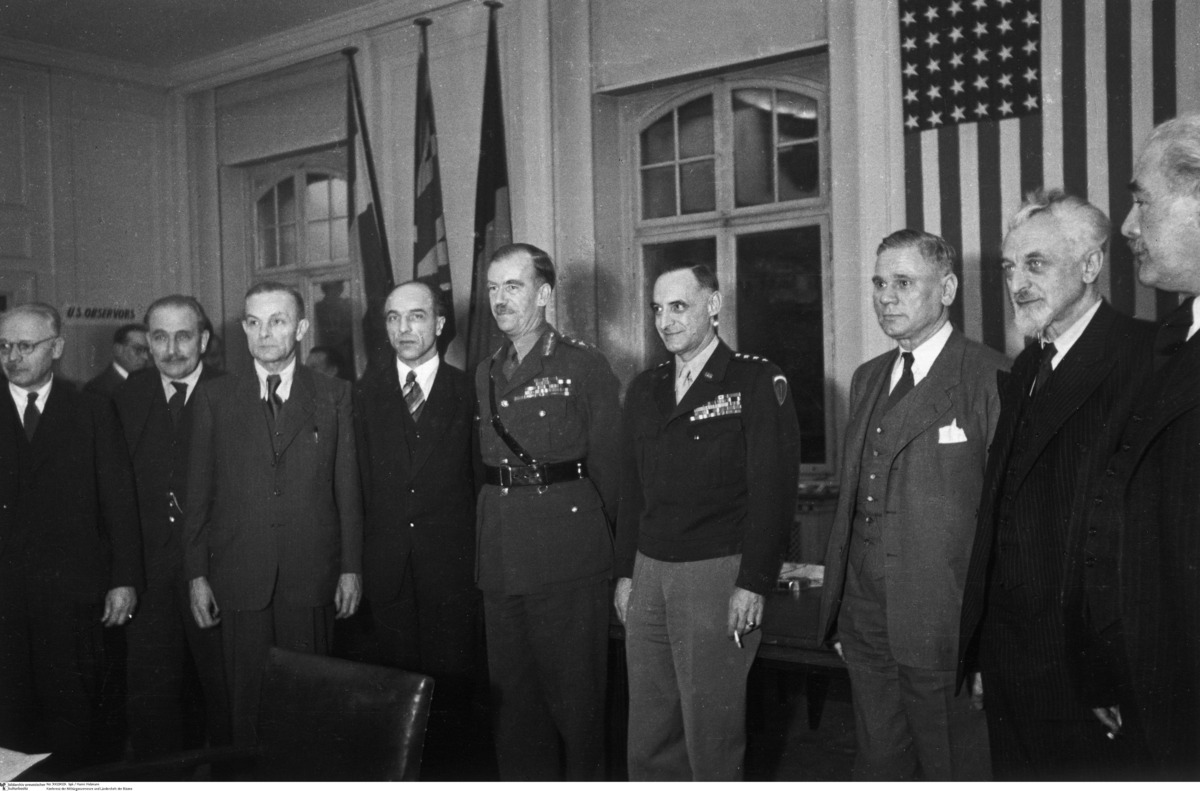Abstract
A U.S. offer in late 1946, after stopping dismantling for Soviet
reparations from its zone, to join up the western zones as one economic
unit led in January 1947 to the economic merging of the British and U.S.
zones into the Bizone. At the beginning of June 1947, an attempt was
made to bring all of the German minister presidents together for a
conference in Munich. The attempt ended abruptly, however, when the
Soviet zone representatives left before the conference even started. For
the heads of the German states in the western zones, this made the
de facto division of Germany
perfectly clear. From November 25 - December 15, 1947, the foreign
ministers of the four victorious powers met in London to address the
German question, but this conference failed to produce results.
Thereafter, at a meeting held in Frankfurt am Main on January 7, 1948,
the British and American military governors, Brian Robertson and Lucius
D. Clay (respectively), presented the minister presidents of the
“Bizone” with their idea for expanding the “Bizone” administration: the
Economic Council (the “Bizone parliament”) would grow from 52 to 104
members; a second chamber, a State Council with two representatives per
state, would also be established; under the chairmanship of a supreme
director elected by the Economic Council and confirmed by the State
Council, the directors of the five administrations would also form an
Administrative Council (virtually a “government”); additionally, it was
announced that a German supreme court and a central bank would be
established. The weekly newspaper Die
Zeit commented that the developed “Bizone” would be less than a
state but more than a mere economic administration.
In the photo, we see the two military governors and the minister
presidents: Christian Stock (Hesse), Wilhelm Kaisen (Bremen), Hans Ehard
(Bavaria), Karl Arnold (North Rhine-Westphalia), Brian Robertson
(British military governor), Lucius D. Clay (United States military
governor), Max Brauer (Hamburg), Hermann Lüdemann (Schleswig-Holstein),
Hinrich Kopf (Lower Saxony).
